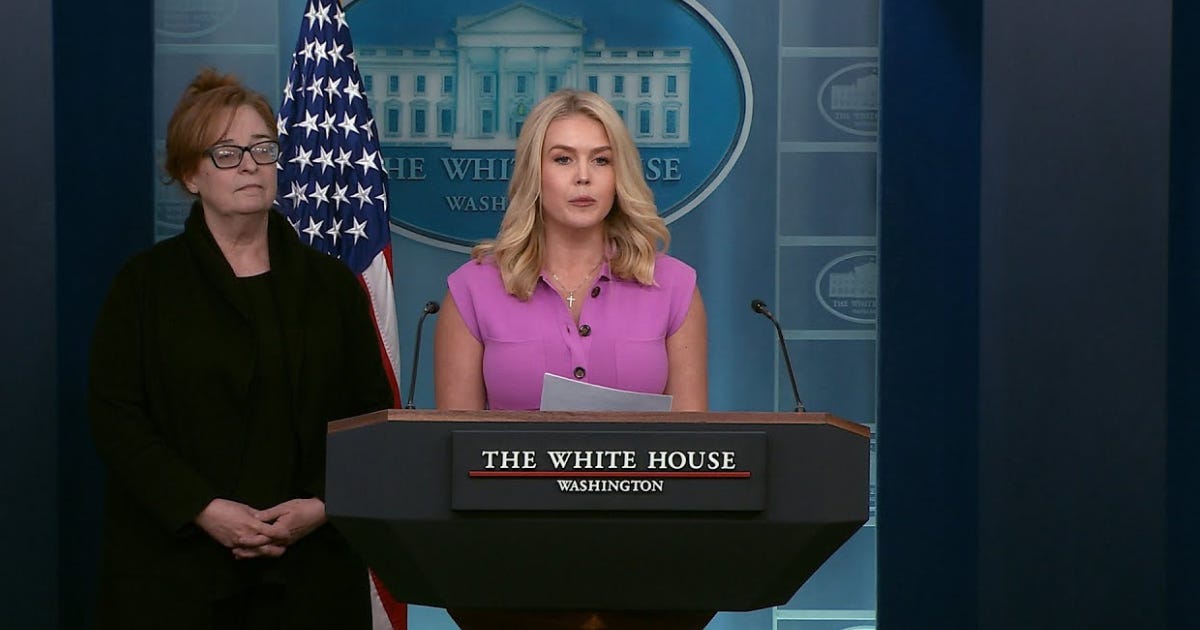White House shuts down CBC reporter with “51st state” remark
The White House shut down a CBC reporter by once again bringing up the concept of Canada becoming the “51st state” after being asked to weigh in on U.S. President Donald Trump’s tariffs.
The White House shut down a CBC reporter by once again bringing up the concept of Canada becoming the “51st state” after being asked to weigh in on U.S. President Donald Trump’s tariffs.
During a recent press briefing, CBC’s Washington correspondent, Katie Simpson, asked White House spokesperson Caroline Leavitt about U.S. President Donald Trump’s tone toward Canada.
Simpson inquired if Trump’s rhetoric had shifted since his presidential campaign, questioning whether this was a deliberate change and what motivated it.
“President Trump’s tone has shifted a bit, ever since the election campaign started, I’m wondering if that’s on purpose and if so, why?”
Trump’s spokesperson, Karoline Leavitt, promptly rejected the suggestion that Trump’s stance on Canada had changed. Instead, she doubled down on Trump’s well-known talking points, emphasizing his consistent criticism of Canada’s defence spending, particularly in light of its reliance on American military support.
Leavitt argued that the reason for a differing tone was that there were fewer questions asked about Canada in recent times by the White House press corps, not from any shift in Trump’s position.
Trump has frequently criticized Canada for failing to meet NATO’s defence spending targer of 2 percent of GDP, despite being a NATO member and neighboring the U.S. He has argued that Canada would be better off as the 51st U.S. state, citing its trade deficit with the U.S. and the benefits Canada receives from free trade with its southern neighbour.
Trump has floated the idea of annexing Canada by applying economic pressure via tariffs, arguing that Canada is not a viable state without US support, citing the trade deficit and benefits from free trade with the US.
Trump’s remarks have had a significant impact on Canadian political discourse, particularly among seniors. According to an Abacus Data poll, 50 per cent of Canadians over the age of 60 now consider addressing Trump’s influence a top election priority. In contrast, 47 per cent of young Canadians (aged 18 to 29) are more concerned with issues like housing affordability.
The data reveals a generational divide, with older voters focused on combating Trump’s policies while younger Canadians are more concerned with domestic issues. In contrast, 47 per cent of young Canadians (aged 18 to 29) are more concerned with issues like housing affordability.



That the CBC would think they had any credibilty is completely laughable and pathetic at the same time.
Do these Trump-fearing Canadians over 60 know where their retirement money comes from? It's source is largerly North American stock markets. Prior to Trump's recent discombobulation of the North, there was four years of Trump followed by four years of Biden. Anyone who like me follows and invests in these markets knows that the four years of Trump were delightfully rewarding and the four years of Biden was financially dismal. While Trump does not liikely need the markets for himself anymore, I trust that he will eventually become less intrigued by Canada and Greenland and return to concerns that are more of a national interest.